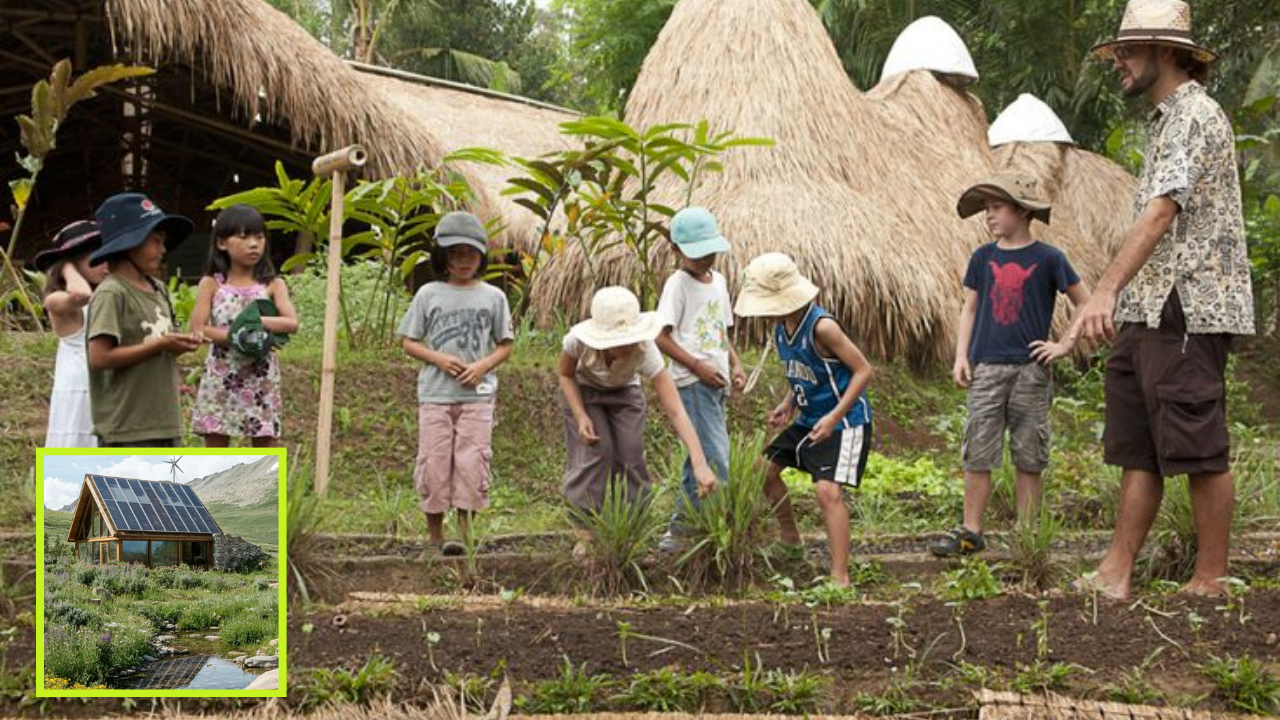The Himalayan eco lodges , renowned for breathtaking landscapes and profound cultural heritage, are rapidly becoming synonymous with sustainable luxury. Nepal and Bhutan, in particular, have emerged as frontrunners, pioneering eco-conscious retreats powered by renewable energy and committed to local communities. In 2025, travelers seek more than just scenic vistas; they desire stays that enhance local economies, minimize ecological footprints, and deliver unforgettable experiences rooted in sustainability.
The following Himalayan eco lodges have been meticulously chosen based on their renewable energy practices, verified sustainability certifications, authentic local engagement, outstanding innovation, and consistently high guest satisfaction (rated 8.5/10 or higher).
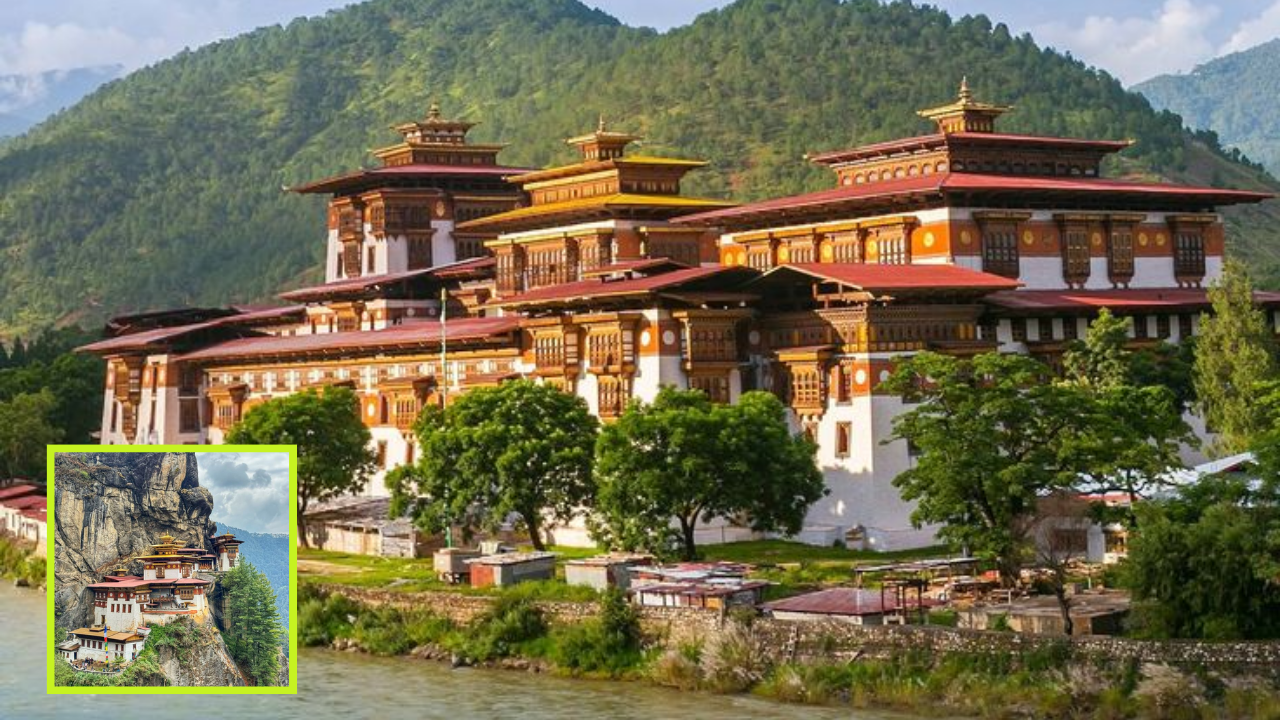
1. Six Senses Bhutan – Bhutan (Thimphu, Paro, Punakha, Gangtey, Bumthang)
Sustainable Luxury Trail Across Bhutan
Six Senses Bhutan offers five distinct lodges, each uniquely designed and powered predominantly by renewable energy sources, including micro-hydropower and solar installations. The resort emphasizes zero-waste principles, eliminating plastic entirely and using locally sourced building materials. Cultural programs immerse guests in Bhutanese heritage, while their sustainability initiatives directly support Bhutan’s carbon-negative national policy.
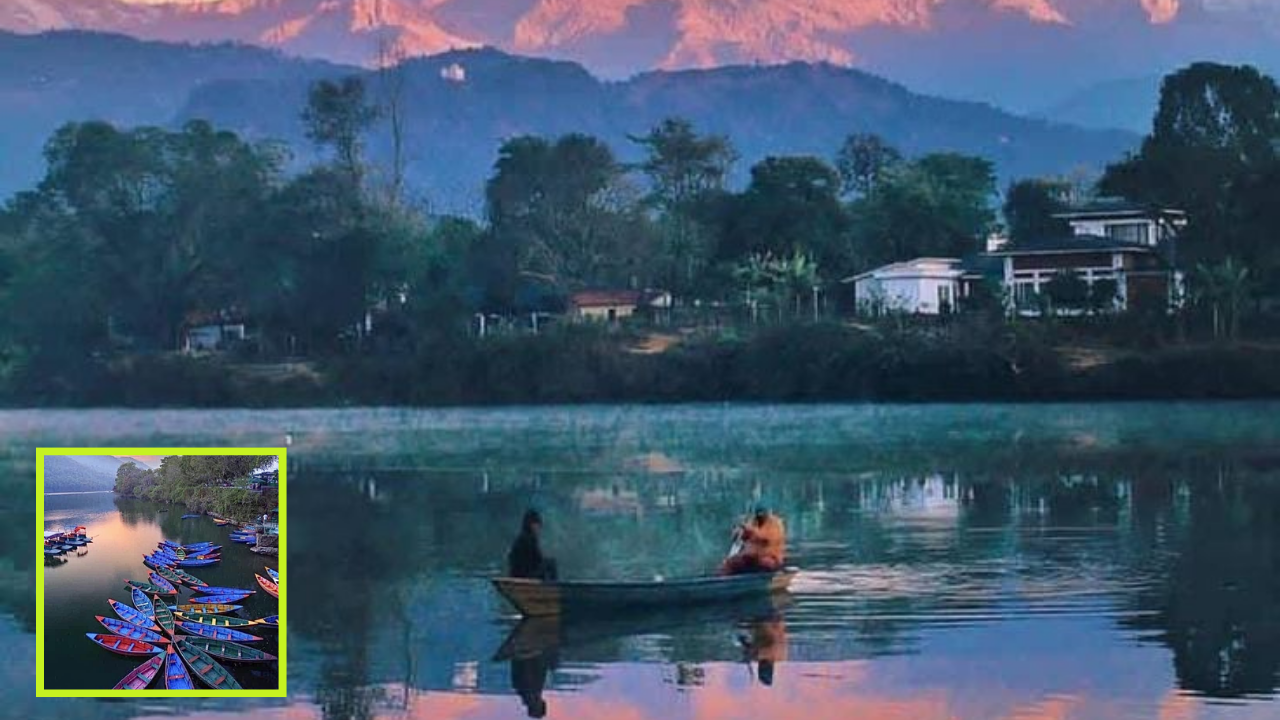
2. The Pavilions Himalayas – Pokhara, Nepal
Off-Grid Organic Paradise
Set within serene rice terraces outside Pokhara, The Pavilions Himalayas is entirely powered by solar energy, complemented by rainwater harvesting and biogas from organic waste. Guests enjoy farm-to-table dining from onsite organic gardens, luxurious yet eco-conscious accommodations, and immersive local community experiences supporting sustainable agriculture.
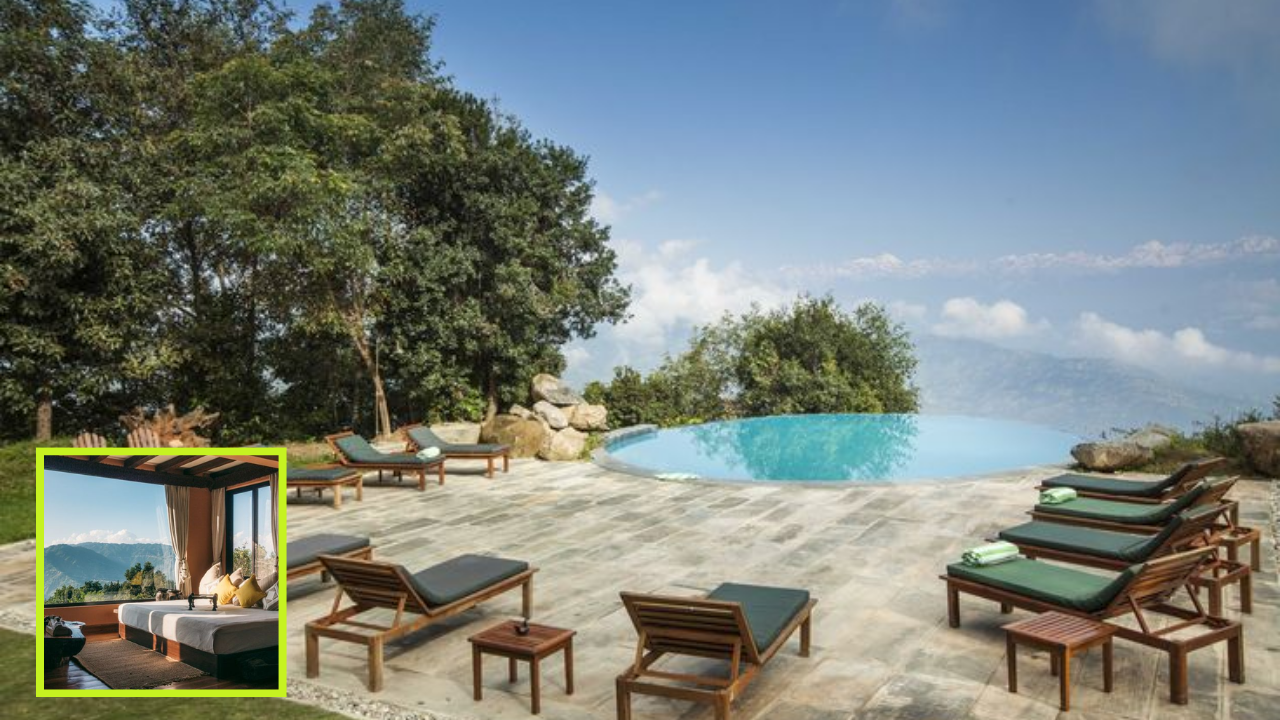
3. Dwarika’s Resort Dhulikhel – Dhulikhel, Nepal
Holistic Sustainability Retreat
Dwarika’s Resort Dhulikhel delivers wellness-focused sustainability, featuring solar power, water recycling systems, and zero-plastic initiatives. The resort’s holistic approach includes extensive organic farming, Ayurvedic and meditation programs, and traditional architectural practices, promoting cultural preservation and environmental stewardship.
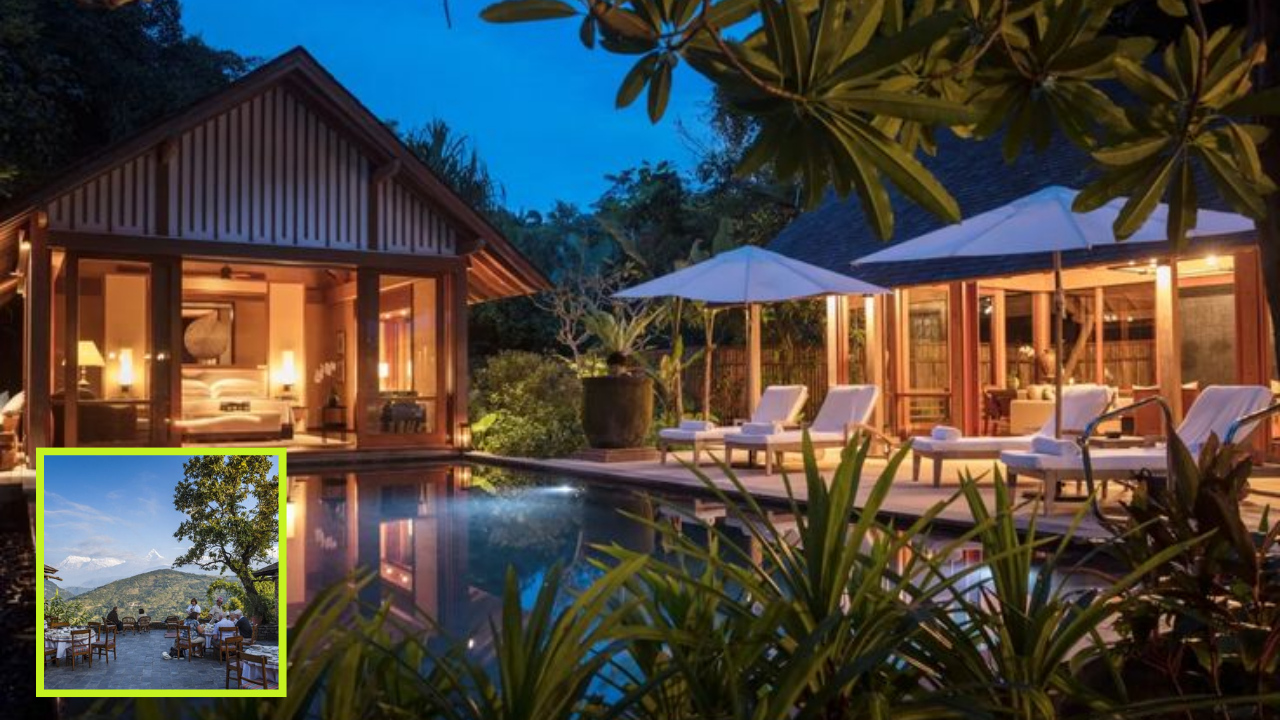
4. Tiger Mountain Pokhara Lodge – Pokhara, Nepal
Community-Led Conservation
Tiger Mountain Pokhara Lodge pioneers community-based eco-tourism. Powered mainly by solar installations, the lodge engages extensively in conservation programs, biodiversity protection, and waste management. Its cottages blend harmoniously with the natural surroundings, creating minimal visual impact and actively benefiting local communities through employment and education initiatives.
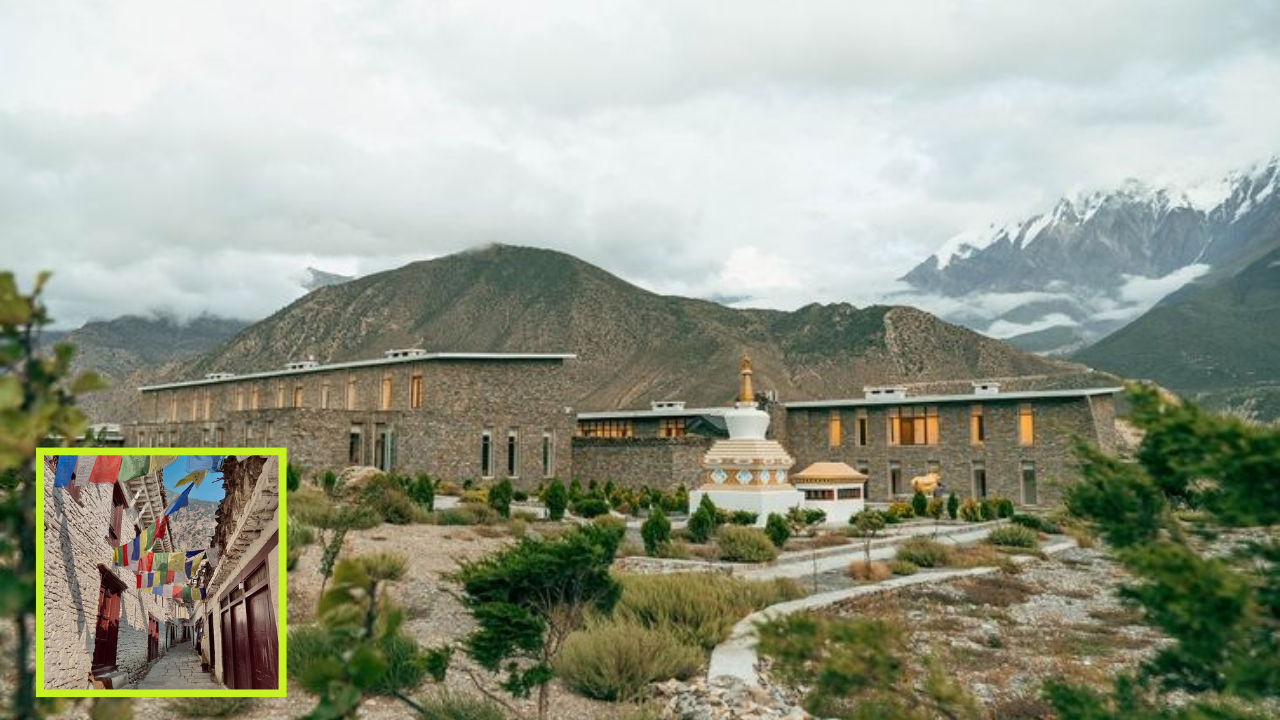
5. Gangtey Lodge – Phobjikha Valley, Bhutan
Carbon-Negative Cultural Immersion
Gangtey Lodge exemplifies Bhutanese sustainability, operating primarily on renewable energy and showcasing traditional Bhutanese architecture. Located within the scenic Phobjikha Valley, the lodge actively supports local wildlife conservation projects, notably protecting the endangered black-necked cranes. Guests experience authentic cultural immersion while contributing positively to the environment and community.
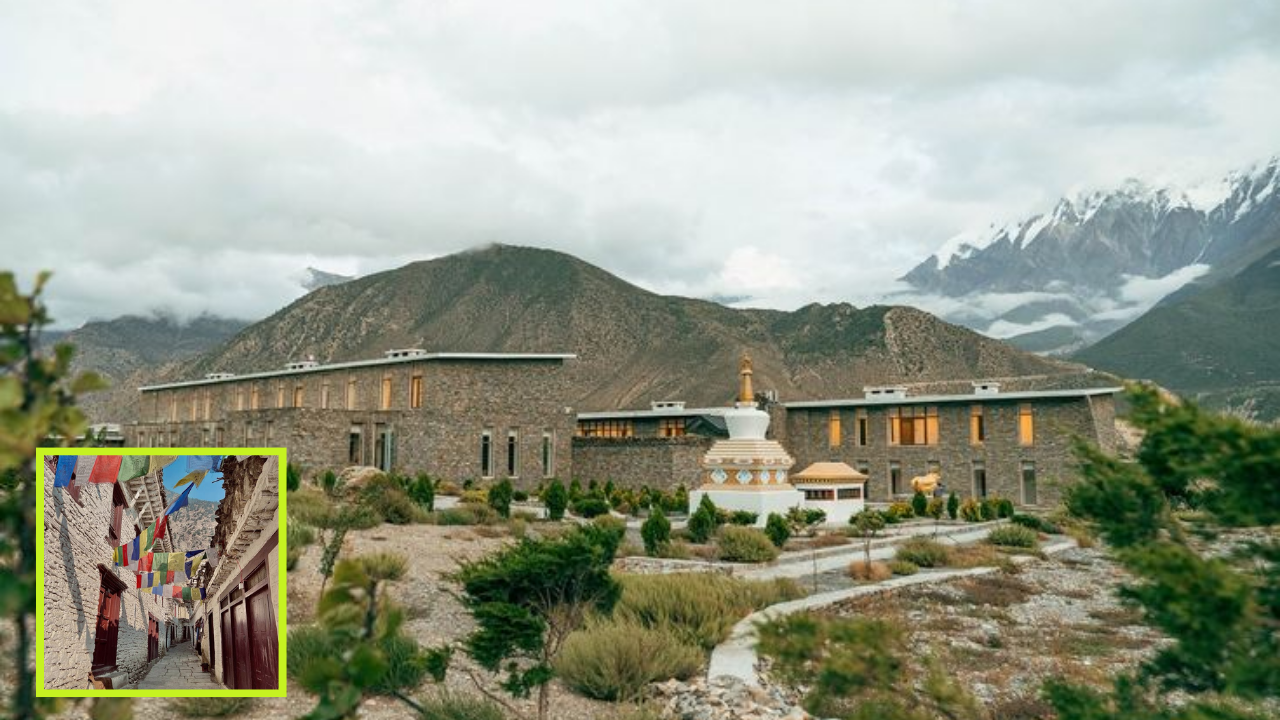
6. Moksha Mustang – Mustang, Nepal
Remote Eco-Lodge Powered by Nature
Deep in the remote Mustang region, Moksha Mustang offers solar-powered accommodations carefully integrated with the stark Himalayan landscape. The lodge adopts strict zero-waste practices, serves organic local produce, and supports local crafts. Its community-first approach ensures sustainable tourism directly benefits the local economy and culture.
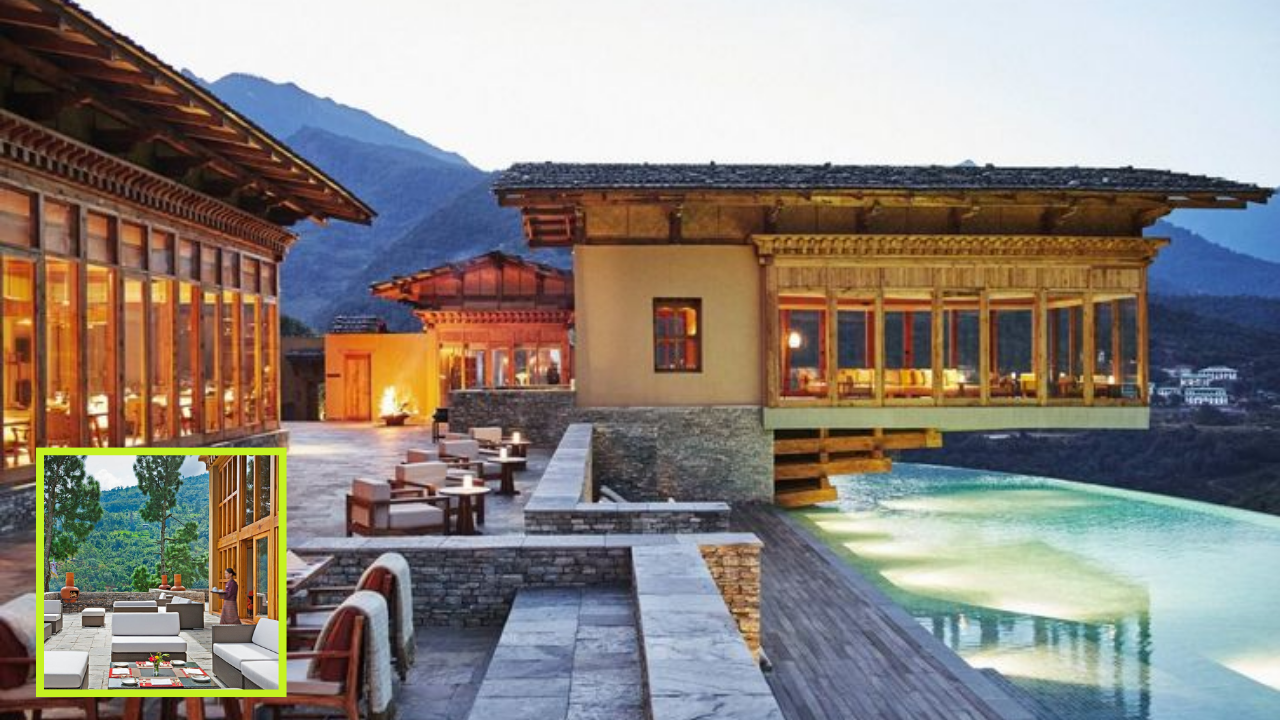
7. Amankora – Multiple locations, Bhutan
Five-Valley Sustainability Trail
Amankora spans five distinct Bhutanese valleys, each lodge thoughtfully powered by renewable energy systems, such as solar and micro-hydro installations. Deeply committed to Bhutanese heritage, Amankora promotes sustainability through minimal ecological footprint construction, locally-sourced cuisine, and biodiversity conservation programs, contributing directly to Bhutan’s goal of maintaining carbon-negative status.
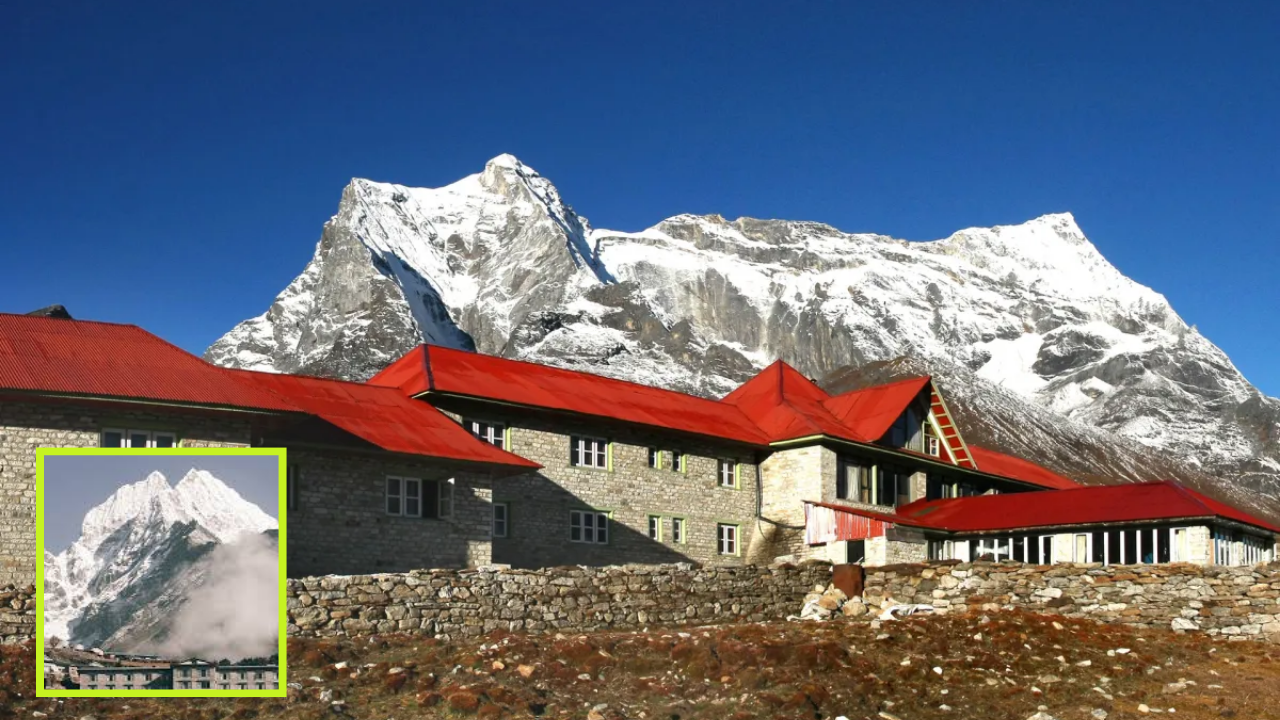
8. Yeti Mountain Home – Khumbu, Everest Region, Nepal
Sustainable Comfort on the Everest Trail
Located along the famed Everest trekking route, Yeti Mountain Home lodges are entirely solar-powered, with additional sustainability measures such as waste composting and water conservation. Its eco-friendly practices ensure minimal environmental impact, supporting local Sherpa communities and offering trekkers comfortable stays that align perfectly with eco-tourism ideals.
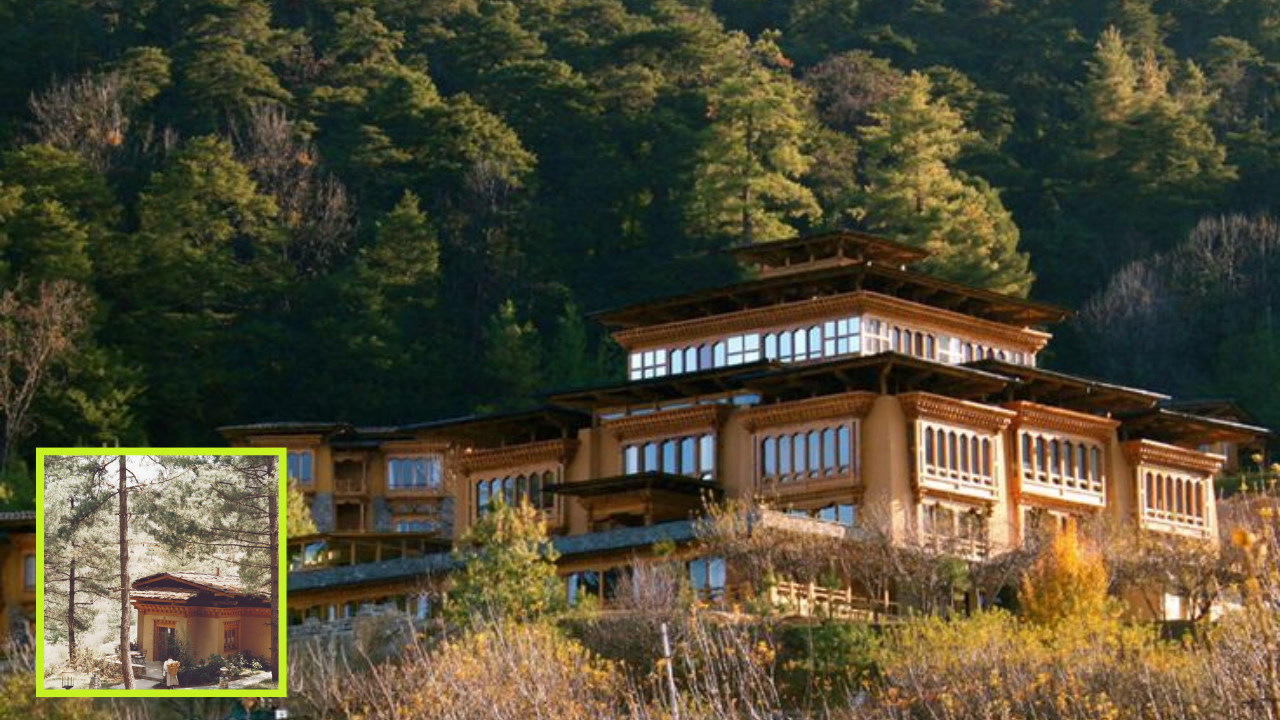
9. Uma Paro by COMO – Paro Valley, Bhutan
Wellness Meets Renewable Luxury
Uma Paro, overlooking Bhutan’s lush Paro Valley, combines luxury wellness retreats with stringent sustainability standards. The lodge incorporates solar and hydro energy, extensive waste-reduction strategies, and locally sourced ingredients for its acclaimed organic menus. Guests engage directly in local traditions, wellness practices, and ecological preservation programs.

10. Meghauli Serai – Chitwan National Park, Nepal
Wildlife Conservation & Renewable Luxury
Though located slightly below the high Himalayas, Meghauli Serai’s commitment to sustainability and renewable energy makes it noteworthy. Solar power meets the lodge’s energy needs, complemented by responsible waste management and water recycling. The lodge funds significant local wildlife conservation initiatives, promoting the harmonious coexistence of luxury tourism and ecological stewardship.
Key Sustainability Trends to Watch in 2025-2026
- Off-Grid Renewable Energy: Himalayan eco lodges increasingly rely on hybrid systems combining solar, micro-hydropower, and biogas, enabling complete off-grid functionality with minimal environmental disruption.
- Community-Driven Eco-Tourism: Deepened collaborations with local communities ensure tourism benefits local livelihoods and promotes regional sustainability through education and employment.
- Zero-Plastic, Zero-Waste Lodging: Growing commitments to eliminate single-use plastics entirely, adopting rigorous recycling and composting measures that reduce overall ecological impact.
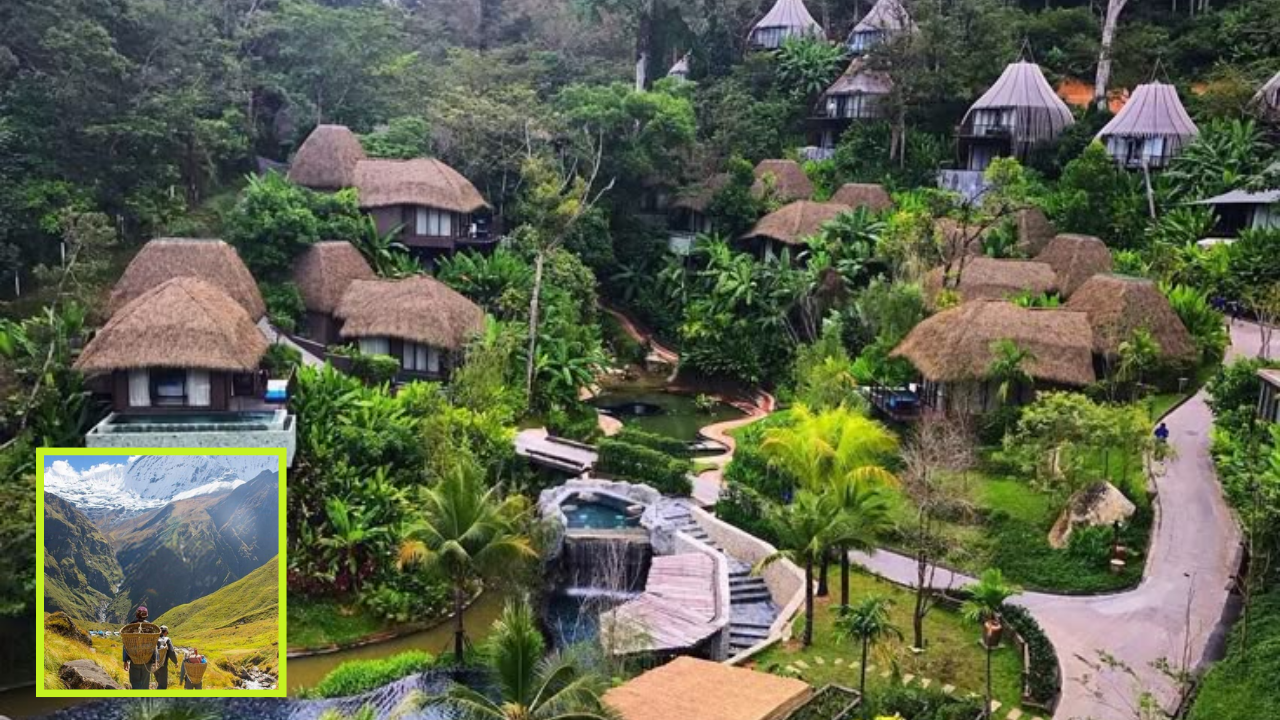
Final Verdict
Eco-lodges across the Himalayas have established a compelling narrative: luxury and sustainability are complementary, not contradictory. From Bhutan’s valleys to Nepal’s mountains, travelers can enjoy exceptional comfort without compromising environmental integrity. These Himalayan eco lodges showcase renewable energy integration, rigorous waste reduction, community-centric approaches, and authentic cultural connections.
Choosing these sustainable Himalayan eco lodges retreats not only enriches your travel experience but also directly contributes to protecting one of the planet’s most majestic regions. Pairing your stay with blockchain-verified carbon offsets from IMPT.io further amplifies your positive impact, making every Himalayan journey truly regenerative and meaningful.
Check this also : Vertical forests and rooftop farms prove mega‑cities can host planet‑friendly stays.

